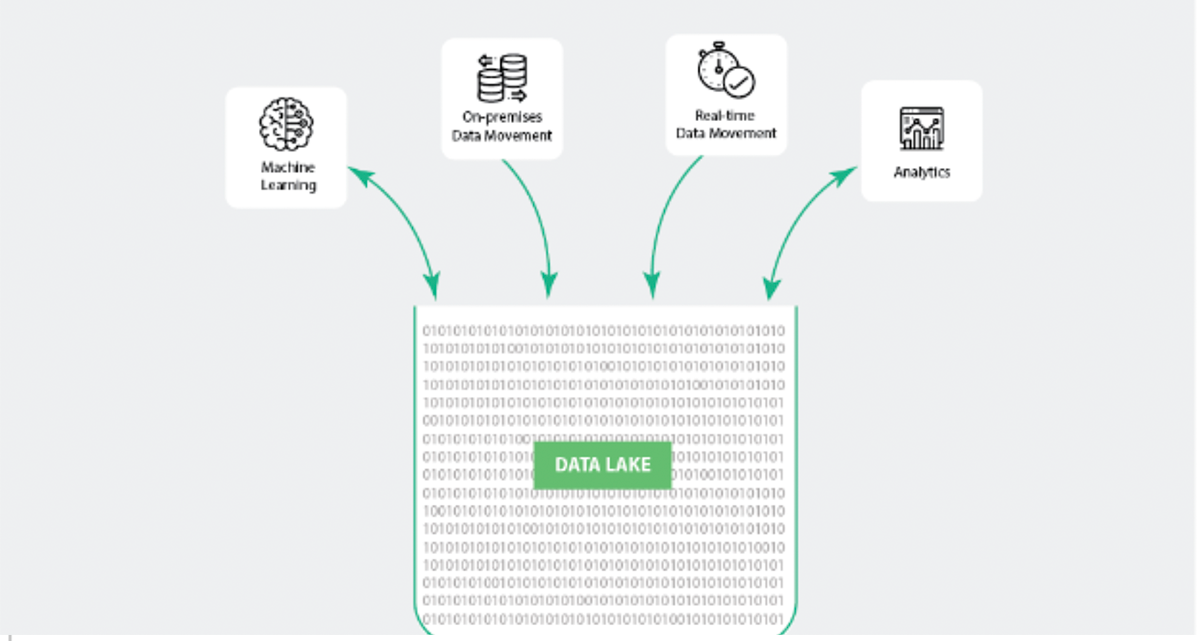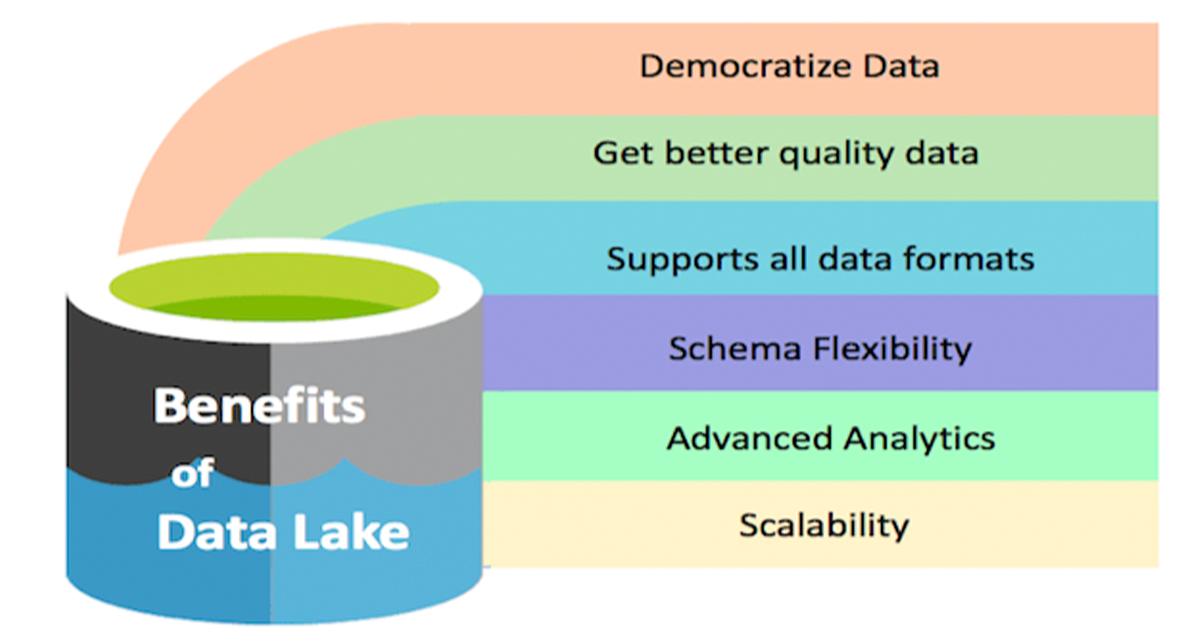
Introduction to Docker
28 September 2022
High Availability and Disaster Recovery in Snowflake
20 March 2023

Published by
BluePi
Data-Driven Business Transformation
What is a data lake and why does your enterprise need it?
What is a data lake?
A data lake is a centralized storage to keep vast amounts of data, be it structured, semi-structured, or unstructured at a single location. It works on the principle of “Load first, think later”. The main idea is to have all your data from all the varied locations in one place and remove data silos across the organization.
- You can use dashboards and visualizations on top of data stored in a data lake to make better decisions, and you can run a variety of analytics without having to first structure the data, including big data processing, real-time analytics, and machine learning.
- While the expression ‘drowning in data’ can be popular, a data lake has greater to do with fishing for insights.

Why do you need a data lake?
Are you fed up with getting data from multiple systems with no logically centralized storage? Are you guilty of removing old data merely because storing it is costly? Are you always modifying your databases to keep up with the changing data structure? Do you have a variety of data consumers who want different versions of the same dataset? If you answered yes, then data lake is your solution.
- Single Source of Truth: Data lakes break down silos and provide access to data analysis, allowing every department to gain a better understanding of customers by using the same data.
- Data democratization: A data lake can make data open to the entire company. The main goal of a data lake is to create organizational data from various sources accessible to various end-users such as business analysts, data engineers, data scientists, product managers, executives, and so on so that these personas can use insights to improve business performance cost-effectively.
- Improve data quality: With a data lake’s massive processing capability, methods may be used to guarantee that data is of high quality.
- Supports all data types: At the moment of ingestion, a data lake eliminates the requirement for data modeling. It’s something we can do while we’re looking for and exploring data for analytics. It can even contain some of the intermediate or fully processed, restructured, or aggregated data produced by a data warehouse and its downstream processes, in addition to raw data.
- Schema flexibility: When reading data in a data lake, the schema of the data can be deduced, offering the aforementioned flexibility.
- Advanced Analytics: A data lake excels at combining vast amounts of coherent data with deep learning algorithms to provide advanced analytics. It aids in the evaluation of real-time decisions. The ability to gather more data from more sources in less time and enable people to interact and analyze data in new ways leads to better, faster decision-making.
- Scalability :When compared to a traditional data warehouse, it offers scalability and is relatively inexpensive.

A data lake must possess the following characteristics:
- Data governance on top of data: Data security is the most crucial consideration in the cloud or on-premises. You can input data into a data lake in its raw form without any processing, but once it’s there, adequate categorization, stewardship, and control are required to ensure that data can be traced, recognized, and accessed by authorized users only. Data governance ensures that data is accurate, reliable, and secure, as well as that it is not misused. To meet legal and legislative requirements, the ability to apply governance rules, and data immutability, identify PII data, and offer detailed audit records of data usage is crucial.
- Data quality checks: Because data quality is such an important feature of high-quality data, even a single incorrect data point can cause chaos throughout the system. Executives can’t trust the data or make informed judgments if the data isn’t accurate and reliable. To ensure the data and information’s integrity, we must measure it according to its nature, format, business requirements, transfer technologies of the data, and storage.
Bluepi is a leading provider of data lake solutions, offering cutting-edge services in Snowflake to help businesses efficiently store and manage their data. With a focus on data lake in Snowflake, the company provides businesses with the tools and expertise they need to unlock the full potential of their data. Bluepi has the expertise to help you get the most out of your data lake. With a team of highly skilled and experienced consultants, Bluepi is dedicated to helping businesses transform their data into valuable insights and actionable results. Choose Bluepi for your data lake needs.































